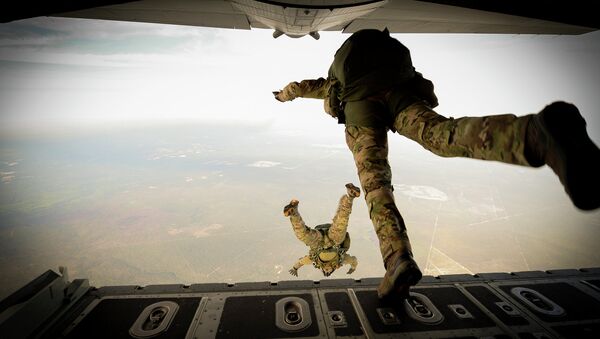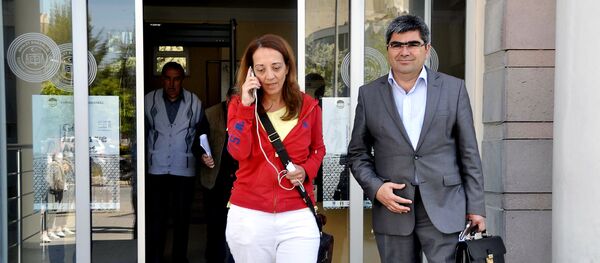On Monday, US President Barack Obama announced the deployment of 250 additional US special operations forces into Syria, raising concerns that the US is becoming embroiled in yet another Middle Eastern quagmire.
The White House asserts that the deployment of Special Forces is intended to repel Daesh extremists. However, with no signal of cooperation from the Assad government or the Syrian-Arab Army combating the extremist group, independent analysts question whether the Obama Administration is at war with Daesh, or with Syria itself.
On Tuesday, Loud & Clear’s Brian Becker sat down with political analyst Issa Chaer of the Syrian Solidarity Movement to discuss the fresh deployment, as well as the US’ endgame strategy in Syria five years after the start of the civil war.
Will the deployment help in the fight against Daesh?
"This announcement raises a number of questions," said Chaer. "First of all, is there a failure of the present tactic the US has employed to tackle Daesh in Syria? Raising the [total] number from 50 to 300 raises the question of what the existing 50 Special Forces have been doing for years – are they there for surveillance or are they working with groups on the ground?"
Chaer argues that the plan to dispatch additional US Special Forces troops will likely be counterproductive, as the US has not given any indication of collaborating with the groups presently combating Daesh, including the Syrian-Arab Army and Kurdish fighters.
Are Obama and the Assad government in agreement on a strategy to end the five-year civil war?
"No, we have heard no reports coming from Syria or other parties working with the Syrian government that the White House has reached out to the Assad government to coordinate activities," said Chaer. "I think it is a mistake to do, but I think the US is protecting the opposition to the Syrian government to the benefit of Daesh. They are protecting the Saudi, Qatari, and Turkish interests."
Specifically, the Free Syrian Army, which has been fighting against Assad for years, claims that they are now cooperating with the US to fight Daesh. The White House often refers to the Free Syrian Army as ‘moderate’ rebels, suggesting that their participation is critical in the fight against Daesh.
Last week, Washington approved giving anti-aircraft surface-to-air missiles to the rebels, in conjunction with combat efforts in Syria. Notably, Daesh does not have an air force, suggesting that this advanced weaponry lacks any utility in that particular fight. Independent analysts suggest that this weaponry could be used by rebels to undermine Syrian bombing efforts against Daesh.
The ‘moderate’ Free Syrian Army has been identified as having ties to al-Qaeda and al-Nusra Front, both Wahhabist groups allied with Daesh, as well as with Saudi Arabia and Turkey. Although the rebels appear to be independent of Daesh, they remain allied against the Assad regime, and Hezbollah and Kurdish forces as well.
Chaer argued that the deployment of US Special Forces into Syria focuses directly on ousting the Assad government, as well as defending armed opposition groups within Syria against counterattacks.
"I doubt very much that the US wants to be part of the liberation of Raqqa from Daesh," said Chaer. "If they wanted to liberate Raqqa they need to prevent the mass infiltration of fighters coming in from Turkey — 500 per day — to fight with Daesh."
"What will 250 Special Forces do against tens of thousands of Daesh fighters parading in the streets of Raqqa and Aleppo?" questioned Chaer. "The 250 commandos aren’t focused on Daesh, they are there to defend the armed opposition groups fighting against the Syrian army."




